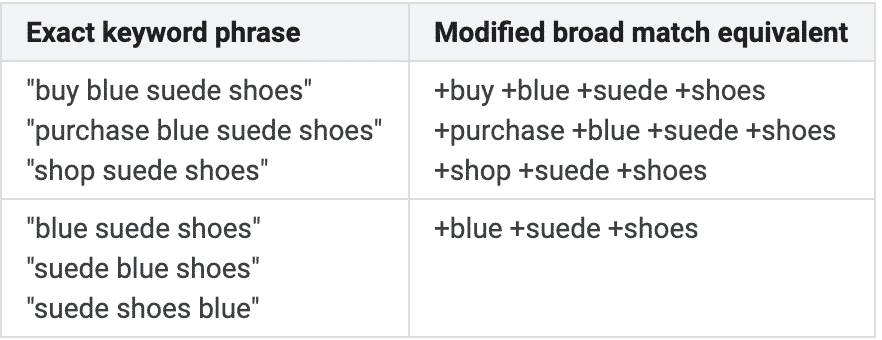Google Ads is one of the top options for law firms aiming for sustainable growth through marketing. The COVID-19 pandemic has changed our lives in so many ways. Among the most impacted marketing aspects is the continuously growing importance of digital components. As the leading search network, Google understands the current environment and is trying to bring updates to the way advertisers can build their campaigns and show their ads.
In previous articles, we’ve worked on recapping bilingual PPC for Law Firms (2020), bringing you the hottest predicted trends for Google Ads in 2021 and tips to help your Law Firm’s Google Ads take off in 2021. As we leave behind the first month of 2021 and find ourselves well into February, we’re getting news from Google with updates regarding their ads that will likely affect the way you can set up your campaigns and their performance. Are you ready to learn about the most current changes and updates and the ways they might affect your law firm’s digital marketing?
Let’s get started.
- Google announced that it is shifting away from the broad match modifier.
We should start our first point with a brief overview of what broad match modifiers are. People consider them an in-between option between broad & phrase match. With the broad match option, your keyword will be triggered whenever there’s a query including it. The difference in broad match modifier (BMM) is that your ad will be activated with a query including your keyword in exact or close matching conditions. Advertisers have been using it as an alternative to getting a looser match than phrase match allows while gaining more control over the triggering conditions broad match allows.
What’s changing? A few days ago, Google announced that they would transition away from BMM. The broad match modifier will gradually be substituted by phrase match. They’re giving a transition period till July 2021, meaning you’ll be able to keep setting up your campaigns with BMM under some restrictions up to that point. Google recommends advertisers start using phrase match from this point on as the + notation will have the same characteristics as “ “ (phrase match). Additionally, if you’re using BMM, you’ll no longer be able to use it in one word within the keyword. If, for example, you would use +PI Law Firm, the notation would go to all terms. If you don’t change or update the keyword, it’ll keep appearing as mentioned above under these characteristics and restrictions. However, it’ll be updated to phrase match if you edit.
From our point of view, this change is headed in the right direction. Some might argue that Google is simplifying things, but that’s not the case at all. For effective, converting campaigns, you’ll need thorough research, careful execution, and a complete negative keywords list that will prevent your ads from being triggered under the wrong circumstances. We believe that the already significant importance of negative keywords for Law Firms Google Ads will be further enhanced, allowing you to allocate your budget towards the best-converting high-intent keywords.
Tip: Keep an eye on your bidding and your CPC (Cost Per Click). There might be an increase in volatility for a specific timeframe, but setting up alerts and proper research & implementation will help you stay on top of the challenges.
Below you can see an example as provided by Google.

- Google adds AI-triggered recommendations for Google Ads.
Google has been heavily investing in AI for a wide range of its products. In a move that continues in that direction, the internet behemoth recently announced that they’re adding auto-applied recommendations. These are 35 AI-generated recommendations coming from four main categories that, according to Google, will help you optimize your campaigns and achieve the best possible results.
Let’s start with a brief overview of the four main categories.
- Auto-applied bid settings. This main category includes nine subcategories that aim to help you maximize your performance. To name a few, it’ll allow you to see enhanced CPC, target impression share, target CPA, target ROAS, maximize clicks, maximize conversions, and view data-driven attribution. Out of all these, we single out the data-driven attribution, which seems to be available to enterprise-level accounts. We’re still unsure how Google will simulate human search behavior.
- Auto-applied ads and extension settings. This includes ad rotation, adding callout to your law firm’s Google Ads, sitelink extensions, sitelink descriptions, snippet extensions, dynamic search ads, responsive ads, display ads, testing new ad copies for repeated phrases, and creating new versions of your ads. Our take on the matter is: consider the recommendations. However, knowing your market, capabilities, and what has been working for you is an indicator of your success. Keeping an eye and manually choosing what to add and exclude can be a deciding factor for more signed clients for your law firm through Google Ads.
- Auto-applied keyword and targeting settings. Here is where we have most of our concerns. There are some elements we say “YES!” to, some that are a “maybe keep an eye on” and some that are a “NO, NO, NO!”. Starting with the positives, it gives you the ability to remove non-serving keywords, which is an excellent step in the right direction. Additionally, the “remove conflicting negative keywords” is a positive one, helping you avoid mistakes and providing a kind of a fail-safe mechanism. No harm in keeping this on. Finally, you can add audience reporting that will help you better understand your searchers. That sums up our “YES!” category. A few “maybes” to keep an eye on would be the pause poorly performing keywords option (Google often misinterprets something that could be a winning situation for you), add negative keywords (we don’t believe that as of now, it can accurately predict them), and display targeting expansion. Finally, there are several “NOs.” First of all, don’t go for the “expand your reach with Google Search Partners.” If you’d consider showing your ads on other networks such as Bing, you can look into them and try them straight through their platform. Remove redundant keywords is another no for us. It sounds good at first and has some potential indeed, but it can falsely remove keywords that generate results for you. The strongest no for us goes to the “add new keywords” option. We always preach for some manual control over your campaigns, and this can drastically harm your performance. The next one is the “add phrase or broad match” to your campaigns. If you’re using an exact match, it’s for specific reasons, in certain ad groups, so we’d suggest not going for this option. The same goes for “adjust your keyword match versions.” Finally, “broad match for fully automated conversion-based bidding” shouldn’t be an option to consider for your law firm’s ads. We’re talking about expensive CPCs, which could consume your budget in the blink of an eye.
- Auto-applied repairs settings. That’s standalone and is all about fixing errors like misspellings that have potentially led to your ads’ rejection for editorial reasons. You can consider leaving this one on, but make sure to review everything if this auto-applied setting happens.
So, how do you decide what to leave on and what to exclude? Google gives access to the auto-applied recommendations control center, and there you can select your preferences. By default, it’s inactive, so if you want to explore and experiment (keeping in mind our considerations and red flags), you can activate it.
What are the key takeaways?
- Google believes and invests in automation. In that direction, they’ve introduced the auto-applied recommendations section.
- There are a few options to keep, some to drop, and some that you should consider keeping an eye on for further assessment.
- The other significant change that Google introduced concerns keyword match types. More specifically, they’ll be transitioning away from BMM and replacing the function with phrase match.
- We see this as an opportunity to work closely on your strategy, and we predict that negative keywords will have an even greater impact on the campaigns’ performance.



